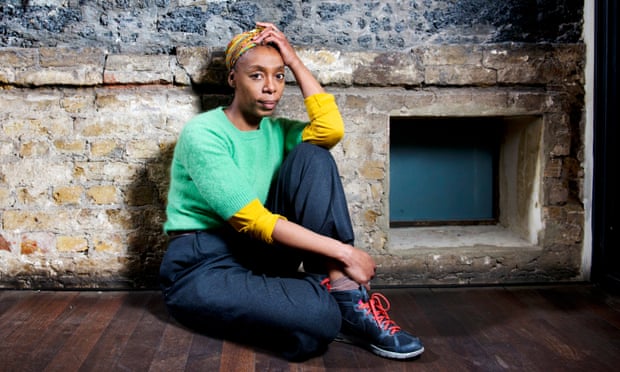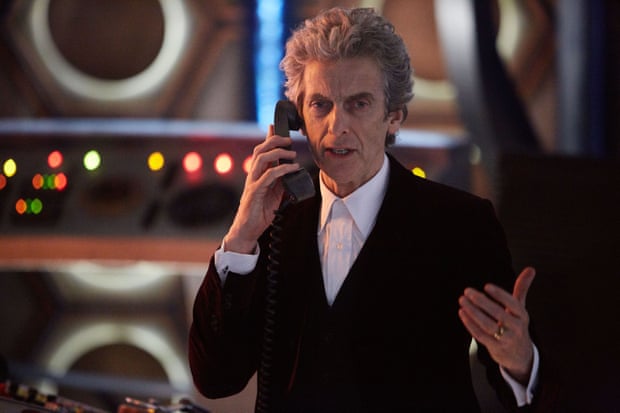Why The New Time Lord Can and Must Be A Woman (Says The Guardian Newspaper)

Most professional selections these days – whether of an American president or an England football manager – are described as the most important in the history of the post. However, the choice of the 13th lead in the BBC’s Doctor Who, following Peter Capaldi’s announcement of his retirement after the 2017 Christmas special, really may decide how long the time-travel fantasy continues to be a TV super-franchise.
Chris Chibnall – the new showrunner, who will supervise the choice of Capaldi’s successor – is taking over a show with average ratings for its last series of around six million. These figures are very far below the average of eight to 12 million that has become expected since Russell T Davies’s 2005 reboot, after a 16-year gap, of the children’s sci-fi show that started in 1963.
Davies turned into a global cash cow a series that had come to be ridiculed by many for cheap and creaking representations of planets and aliens. To play the two-hearted Time Lord from Gallifrey, he cast the sort of actors – Christopher Eccleston and David Tennant – who play Hamlet on stage.
For the last seven years, Davies’s successor, Steven Moffat, continued casting from the classier parts of the Equity register – Matt Smith and then Capaldi – but met increasing resistance from some viewers and critics to the scripts he gave them.
When last year’s Christmas special was screened close to the new year episode of Moffat’s other BBC hit, Sherlock, the shows often seemed to be negotiating a merger. Both have become dark, painful love stories full of meta-references for super-fans, a trend encouraged, in Doctor Who, by Capaldi’s decision to emphasise the depths of pain and death the Doctor has seen and suffered.
Chibnall’s first task may be to reboot the show again, making it lighter and more accessible to new generations who have never seen it before. Crucial to this will be his casting of the central part.

Faced with that decision, Davies opted for two actors with whom he had previously worked on big TV projects. In contrast, Moffat had experienced the work of Smith and Capaldi largely as an admiring viewer.
Chibnall has an obvious opportunity – at a time of urgent debate in British TV about diversity – to think outside the TARDIS. It seems likely that Charlotte Moore, BBC TV’s director of content, will at least want a conversation about whether the gender and race of the character played by a dozen white men so far is written in stone tablets somewhere in the galaxy.
Unlike other great British multi-occupancy fictional roles (James Bond, Sherlock Holmes) shape-shifting is an established part of the narrative here. The Doctor can be anyone – and this time, to my mind, the Time Lord can and must become a Time Lady.
A compelling possibility is Cush Jumbo. The work of this young Anglo-Nigerian actor – from her solo stage show Josephine and I to a leading role in The Good Wife – has demonstrated an electrifying presence and ability to play both comedy and pain that could fascinatingly extend the Whovian succession. She also has useful franchise form, having starred in the 2009 season of the spin-off Torchwood. Jumbo’s availability, though, would depend on whether her involvement in ABC’s The Good Fight, itself a spin-off from The Good Wife, goes beyond a first season.
Another strong contender must be Noma Dumezweni, an Olivier award-winning stage performer, currently playing Hermione Granger in the West End production of Harry Potter and the Cursed Child. Dumezweni experienced detestable abuse on social media from those convinced that JK Rowling’s character was white, so she might balk at becoming the first black, female Doctor, but, like Jumbo, would make a dramatic statement of refreshing intent.
If Chibnall prefers a performer he has worked with before, then Freema Agyeman, who starred in Law & Order UK, will be in the frame. Having played Martha Jones in Doctor Who and Torchwood, she would become the first Doctor’s assistant to take control of the TARDIS, a casting overlap that could be easily explained by a speech about body-borrow-regeneration or some such pseudo-sci-fi. But she would need to be released from the Netflix show Sense8.
Capaldi has been in the top tier of the Doctors so far – up there, for me, with Tennant, Patrick Troughton and Tom Baker – but his departure offers a chance to take the show to places that even a character with so many Frequent Time-Traveller Miles has never been.